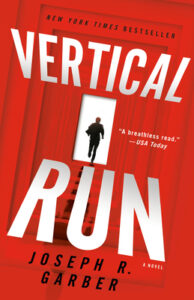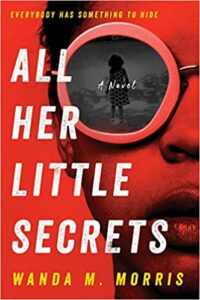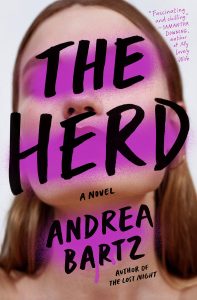It’s been nearly two years since a new acronym entered the mainstream lexicon: WFH. (Dictionary entry: Abbr. Working from home; work from home. See also WTF?). Millions of office workers around the world swapped out their nerve-jangling commutes for the stupefaction of endless Zoom calls. They gave up constricting neckties and high heels for soft pants and Ring lights. They said good-bye to power lunches and hello to sourdough bread. In the parlance of mystery writers, the office thriller gave way to domestic suspense.
But now, with the world maybe, hopefully, about to slouch toward normality, it’s time to ask: How thrilling is your office, or how thrilled are you to return to it? The debate rages. On one side (supervisors mostly, who put a premium on face time) the office represents camaraderie and opportunities for brainstorming. To others it conjures up memories of petty politics and acrid coffee.
But for those with darker turns of mind––i.e., thriller writers, e.g., me––the office is a petrie dish for murder and mayhem. My latest novel, The Cage, is set in the corporate headquarters of an international fashion conglomerate. Two women working late on a Sunday night enter an elevator, going down. By the time it arrives on the ground floor, one of them is dead of a gunshot wound to the head. Was it suicide, as the survivor claims, or murder, as the police suspect? The dead woman, we learn, was party to a heinous corporate crime. Was that torment enough for suicide? Or was it motive enough for murder?
Here’s a round-up of some other novels that put the thrill into the office, starting with two seminal works written by men a few decades ago, followed by four contemporary novels written by women, who, after all, comprise the majority of office workers today.

The Firm by John Grisham is usually categorized as a legal thriller and blamed for detonating an avalanche of wannabe lawyer-writers. But it’s equally an office thriller. Its lawyer-protagonist, Mitch McDeere, could as easily be an accountant or any other office worker whose dream job turns into a nightmare. Mitch is recruited out of law school to work for a firm where the perks seem too good to be true. Alas, they are. Turns out the firm is a front for the mob. The FBI comes calling, and Mitch faces a Hobson’s choice; spy on the bad guys and risk deadly retribution; or refuse to cooperate and go to prison. He chooses the high road, but amusingly, his acts of derring-do consist mostly of photocopying documents. (If only digital downloads had been a thing in 1991). The adrenaline does kick in, however, when his firm gets suspicious and Mitch goes on the run, chased by both the mob and the FBI, until he succeeds in outsmarting them all and sailing off into the sunset.

Vertical Run, by Joseph R. Garber, is all adrenaline, all the time. David Elliott is at his desk in his executive suite office when his boss walks in and aims a gun at him. Over the next 24 hours, David is trapped in the 50-story office building while a team of highly skilled mercenaries hunts him down, and he has no idea why. Luckily he’s a Special Forces vet with mad guerilla-combat skills, and he’s able to hold them at bay long enough to dig through company files and find out why he’s got a target on his back. Then comes the big reveal that explains why David has to die. Spoiler alert: It seems he’s lethal in more ways than one.

Ellice Littlejohn, the protagonist of All Her Little Secrets, by Wanda M. Morris, could be a poster child for Smart Women, Foolish Choices. An Ivy-educated Black lawyer, she (1) works for a notoriously racist corporation that turns out to be as corrupt as The Firm, (2) sleeps with her married boss, (3) finds his dead body and tells no one, (4) lies to the police about it, (5) covers up her brother’s involvement, and (6) inevitably becomes the prime suspect in the man’s murder. Her back story, a harrowing tale of poverty, abuse and addiction, goes a long way toward explaining her poor choices. Still, it’s a relief to watch her finally wise up and outwit the bad guys in a climactic chase scene through office cubicles that’s almost reminiscent of Vertical Run.

The impostor in Impostor Syndrome, by Kathy Wang, is Julia Lerner, who was recruited by a Russian intelligence agency and installed into upper management at a huge social media company in Silicon Valley. Her mission: to tap into the platform’s all-seeing abilities and funnel intelligence back to Russia. It’s a plum assignment; she’s rich, powerful, and influential, and only occasionally called upon to do evil. It’s all going swimmingly until Alice Lu, a worker bee for the same company, stumbles upon Julia’s breach of the privacy settings. What follows is a cat-and-mouse game that also serves as a send-up of Silicon Valley and tech bros of all genders everywhere.

The office in The Herd, by Andrea Bartz, isn’t the typical single-company workplace. Instead, it’s an exclusive, women-only co-working space launched by celebrity entrepreneur Eleanor Walsh. Millennial women are dying to be accepted into the Herd––at least until Eleanor herself is found dead on the frozen rooftop of the glitzy building. Her friends—the Herd’s publicist, its graphic designer, and a writer secretly working on an unauthorized book about Eleanor—launch an investigation that exposes a lot of unknown and unsavory facts about both Eleanor and her so-called friends.

Bad news for the Work-from-Home contingent: One by One, by Ruth Ware, shows us that the office thriller doesn’t have to take place in a physical office. Equally deadly is an Alpine ski resort where a group of tech colleagues gather for a retreat to take a critical vote on a takeover bid. In a deliberate homage to Agatha Christie’s And Then There Were None, the author kills off one executive or employee after another until the killer is revealed in a sleight-of-hand almost as brilliantly devious as Christie’s.
***


















